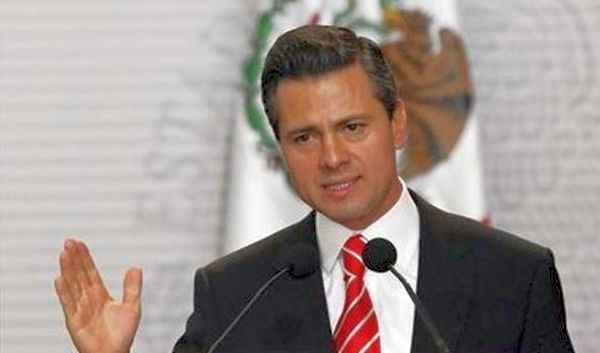Mexico City, Mexico - The Mexican government's planned overhaul of its phone and television markets opens up the field to all players, one of the architects of revamp said on Wednesday, which could offer telecoms tycoon Carlos Slim a way into the local TV business.
The telecoms reform bill, presented by President Enrique Peņa Nieto on Monday, could end broadcaster Televisa's rule of the airwaves and Slim's stranglehold on the phone business.
The government is seeking to boost competition in the closed sector by allowing more foreign ownership of media and phone companies. Regulators would also be given the power to force players commanding more than 50 percent of the market to sell assets.
This could lead Slim, the world's richest man, to offset pressure on his phone business by pushing into Mexican television, a market that he has been kept out of so far.
In an interview with Reuters, deputy communications minister Jose Ignacio Peralta, one of the architects of the bill, said provided regulators did not judge that a player seeking to enter a market would damage competition, it might be allowed in.
"The door is not closed," said Peralta, when asked whether big companies like Slim's fixed line giant Telmex could seek a concession to operate in the Mexican television market.
"(The reform) seeks to create markets with out-and-out competition, and this competition delivers benefits in terms of quality, coverage and competitive prices," he said. "(This) means that, all the players, all the concession holders, all the companies, all the participants, can play in all the fields."
Shares in Slim's phone company America Movil have tumbled since the reform was unveiled, falling nearly 8 percent on Wednesday alone. Shares of Televisa, controlled by Emilio Azcarraga, have also dropped, though by a smaller margin.
America Movil controls about 70 percent of Mexico's mobile market and 80 percent of its fixed phone lines, while Televisa has upwards of 60 percent of the Mexican TV business.
If Slim were forced to reduce his share of the Mexican phone market, it could open the door to Iusacell, Televisa's cellphone joint venture with rival broadcaster TV Azteca. Iusacell currently has about 6 percent of the Mexican mobile market.
Peralta hinted that the size of market players might not matter as much as how they act once the reform came into effect.
"Let's say the size of dominant players doesn't necessarily imply anti-competitive behaviour," he said. "The concentration of the market is one thing; it's something else when this dominant economic player is using its market power, its size, its concentration, to behave in a predatory, monopolistic way."
Peralta said it was too early to say how soon firms could be forced to divest assets. But he was confident Peņa Nieto's reform would become law, noting it has broad political backing.
Peņa Nieto, who took office in December, brokered the telecoms bill with the leaders of the main opposition parties, including Gustavo Madero, chairman of the conservative National Action Party (PAN), who praised the reform as "historic."
Members of Peņa Nieto's centrist Institutional Revolutionary Party have said they think the bill will be approved by Congress before the current session concludes at the end of April.


